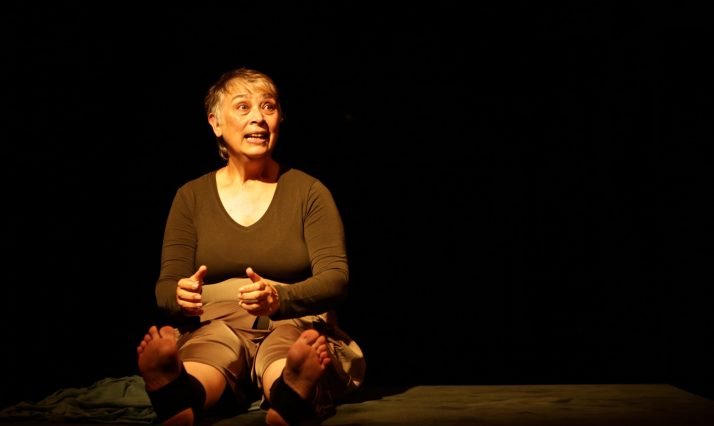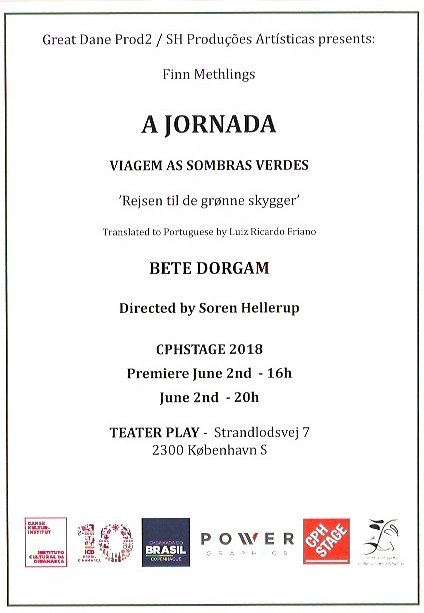Award-winning Brazilian actress performs classic Danish monologue

Actor and director Søren Hellerup brings Brazilian actress to CPH Stage
Actor, director, and producer for the stage Søren Hellerup brings the Danish classic Rejsen til de grønne skygger (Voyage to the Green Shadows) to CPH Stage, in a production with new life from Brazil. The award-winning Brazilian actress Bete Dorgam plays the part of a woman telling the story of her life from cradle to grave.
Rejsen til de grønne skygger was written by Finn Methling, and the play became his big breakthrough, premiering in 1952. This performance by Bete Dorgam will give the Danish audience a chance of experiencing the classic story about our existence in a brand new way, with the portuguese language serving as a prism for new meaning (english translation will be provided).
Dorgam is lauded for her stagework, both as actress and instructor, but she has contributed to series and film as well, besides being a revered teacher in the field of acting. She has an amazing range, mastering dramatic roles as well as continuing a tradition for clowning, which she attributes great importance, stressing how it informs all her work. She has received the Brazil Award (the Brazilian Tony), The Shell Award (Sao Paulos’s most important theater award) and the APCA movie award.
Søren Hellerup and Brazilian-Nordic theater
This is not Søren Hellerup’s first venture in bringing theatrical traditions from the Nordic Countries and Southern America together. Living and working in Brazil for several years, one of his projects was the production of August Strindberg’s and Dorrit Willumsen’s … with a Brazilian cast. That production visited CPH Stage last year.
The reimagining of the classic Nordic plays are not just interesting for the Danish theater-going audience. Among other subject, the plays explores gender issues, a theme of great relevance in a contemporary Brazilian context, with a tendency in some parts of society to reinforce stereotypical gender roles and interactions between the genders.
